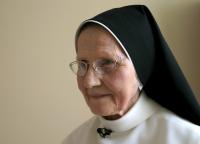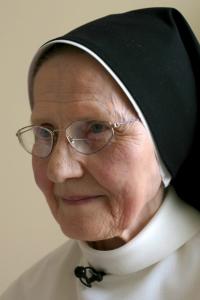Prayer will help us.

Download image
Sister Candida Šustová was born on March 18, 1934 in the Vranov-Čemerné. She went to elementary school in Veľaty and Trebišov. In 1948, she entered the Congregation of the Sisters of Saint Dominic - of b. Imelda in Kosice. From Kosice was forcibly deported to Kostolna near Trenčín. She was later forcibly transported to Czech Lipa. Here she lived in poor conditions, as reflected in her health. In 1952 a very deteriorated state of health and, therefore, has been translated into Jasova. She had to take up disability pension. Later she worked in Ľupča Slovakia, Košice. Since 1983 she lives in a charity house in Dunajska Luzna.

